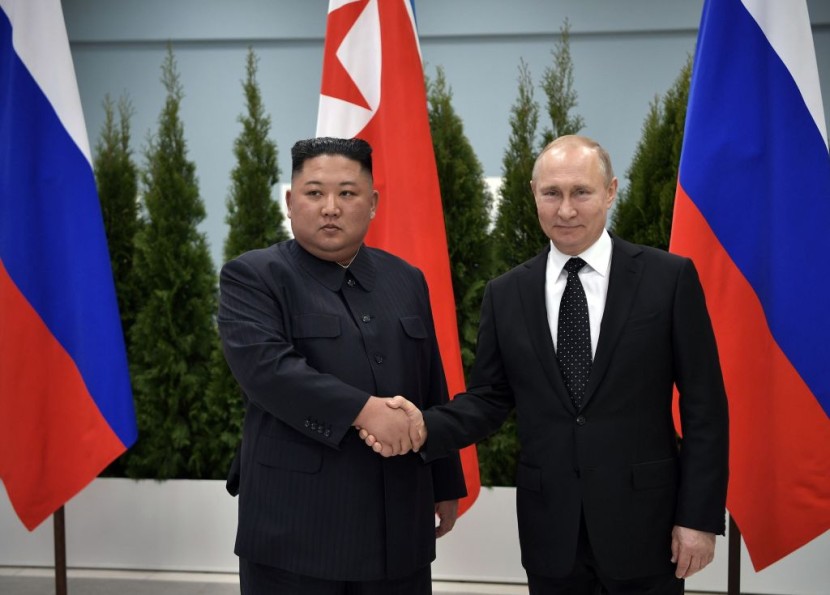
North Korea has become a critical military supplier for Russia in its war against Ukraine, with artillery and weapons systems forming the backbone of Russia's recent battlefield efforts, according to a Reuters investigation conducted in collaboration with the Open Source Center (OSC).
The investigation found that in some units over the past year, the majority of shells fired by Russian forces came from North Korea, significantly aiding Moscow's grinding war of attrition. Analysts tracked 64 shipments over 20 months, including nearly 16,000 containers filled with millions of artillery rounds—many of which were still arriving as recently as March 17.
The analysis drew from intercepted Russian artillery reports, satellite imagery, verified social media footage, and confirmation from three senior Ukrainian officials. "North Korea's contribution has been strategically vital," said Hugh Griffiths, former coordinator of the UN panel of experts monitoring North Korea sanctions. "Without Chairman Kim Jong Un's support, President Vladimir Putin wouldn't really be able to prosecute his war in Ukraine."
This military alliance first surfaced in 2023 but gained urgency in recent months. As Ukraine tried to push into Russia's Kursk region, it was met with renewed Russian firepower—much of it supplied by Pyongyang.
Ukrainian officials estimate North Korea now provides nearly half of Russia's front-line ammunition needs, a figure consistent with OSC and Reuters data. One Ukrainian military expert told Reuters the contribution was sometimes as high as 70 percent.
Beyond munitions, North Korea has sent long-range artillery systems, ballistic missiles, and troops. Around 4,000 North Korean soldiers have been killed or wounded since arriving in late 2024, according to a South Korean security source. An additional 3,000 troops followed by mid-February, reportedly better trained. "They adapted to modern combat conditions," said Oleh Shyriaiev, commander of Ukraine's 225th Separate Assault Regiment.
Ukraine's military intelligence chief, Kyrylo Budanov, stated in February that North Korea also provided Russia with 120 long-range self-propelled artillery systems and 120 multiple launch rocket systems. Ukrainian drones captured footage of some systems in action during fighting in Kursk.
The collaboration comes at a time when U.S. President Donald Trump has signaled a desire to end U.S. support for Ukraine, a move that has added uncertainty to Ukraine's war effort. Western aid, while vital, has fluctuated. A Czech-led plan to supply 1.6 million rounds has helped, but allies have not committed ground troops, and resupply efforts have struggled to keep pace with demand.
"Whoever had the most shells would have a major advantage," Reuters reported. During peak fighting, both Russia and Ukraine were estimated to fire 10,000 artillery rounds per day.
Russia's partnership with North Korea has helped it regain ground in key areas like Kursk, where only a small Ukrainian pocket remains. The U.S. has accused North Korea of shipping containers filled with munitions from Rajin to Russian ports, where they were transported by rail to western depots.
Satellite imagery tracked the spike in deliveries starting in September 2023. The shipments peaked in January 2024 and averaged three per month by March 2025.
Russia and North Korea share a brief but historically significant border. Kim Il Sung, North Korea's first leader, fought in the Soviet Red Army and received postwar Soviet support. The countries built a "Friendship Bridge" in 1959 for rail transport across the Tumen River, which is still in use today.
Following Russia's political and economic isolation after its 2022 invasion, ties between the two countries have strengthened. Russia's Defense Minister Sergei Shoigu visited Pyongyang in July 2023, meeting with Kim Jong Un to discuss military cooperation. The Cold War-era alliance has since evolved into a vital supply chain fueling Russia's war machine.








